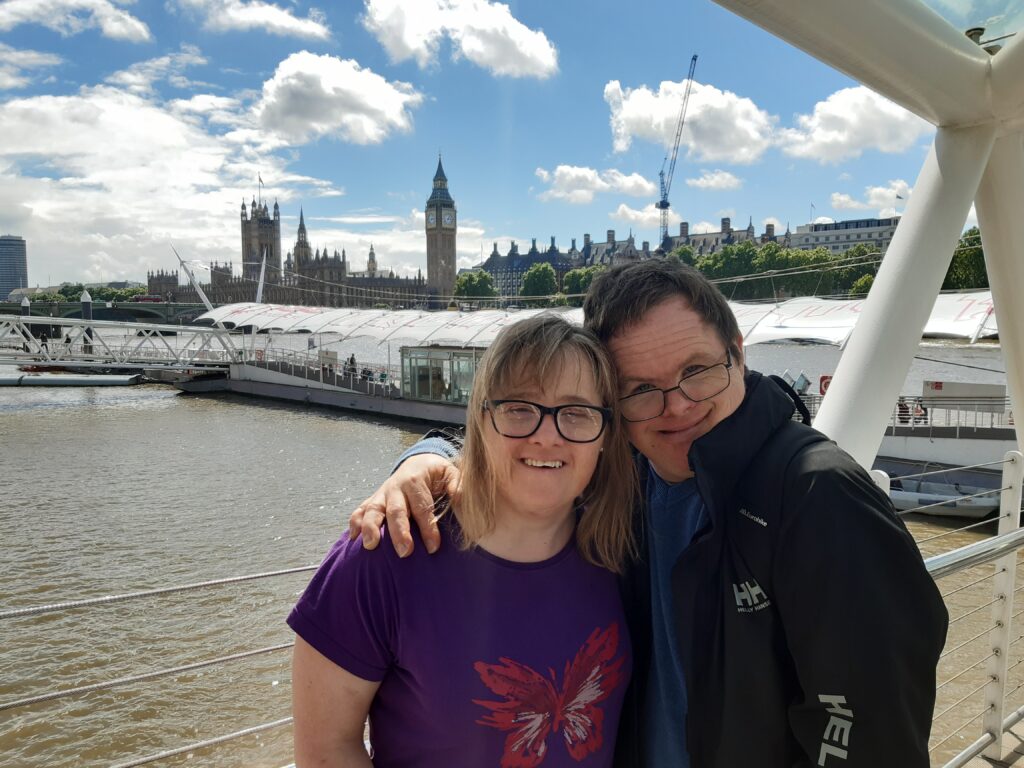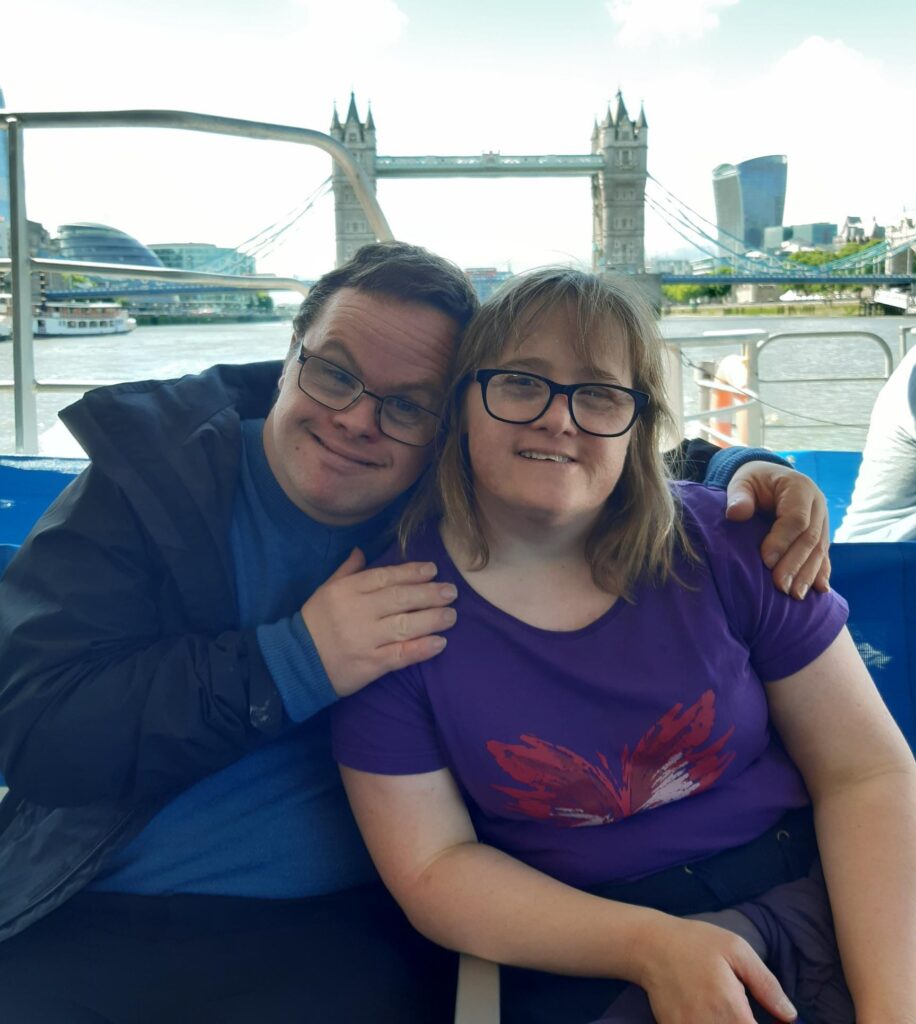We found love, and Sense are supporting us to be there for each other
Emma and Ben live together at Otterhayes, a Sense Supported Living service. They’re both in their early forties and have Down Syndrome. Like any other couple, they’re working out how to deal with life’s ups and downs together. Tracy, who leads on identity, sex and relationships work at Sense, meets with them regularly to help them to do this, encouraging communication and openness so they can keep being there for each other.
Emma: Ben and I knew each other before Sense. We went to the same school, so we’ve actually known each other for about 35 years! I remember when we first met, I liked his cheeky laugh…
Ben: I knew you’d say that! I liked Emma as a person too and I wanted to ask her to be my girlfriend. During school breaktime one day, I was about to ask her “Will you be my girlfriend?” but, before I knew it, she’d beaten me! Emma asked me first.

Emma: I was speechless when he said yes! After school we met again at college. We had great fun, but we didn’t become boyfriend and girlfriend again until later. Ben and I both moved into supported living in the late nineties. We lived with other people, but I remember when Ben moved in downstairs.
Ben: It was in 2019 that we were able to get our own flat together. We had relationship support from staff, and from Sense when they took over the service a few years later. That’s when we met Tracy.
We both wanted to learn more about how to live together, to be there for each other and to go out on dates. We have our own bedrooms in the flat so we can still have our own space and our own things. That means a lot to us. Sense have helped us find the right balance.

Emma: I like Ben’s company – he brings me tea in bed, and he gives good hugs. We cook and spend time together during the week, and always spend our Friday evenings together. We have separate hobbies too. I work with a charity called Down Syndrome International on Thursday, and I like coming back to tell Ben about my day.
Ben: I like to meditate. I do it on my own, but I said to Emma that it helps me feel better – it’s helped me be less cross – and she said yes to trying it too. So that’s something she can join in with. On Fridays, Emma comes into my room to watch DVDs and we curl up together, which I like.
Emma: We’d like to go on a date soon, an outing for just us. We’re going to make plans with our Sense staff so we can go to the cinema.
Ben was there for me during my hip operation last year. He was also there for me when my dad died. My dad liked Ben a lot.
Ben: It’s good when Emma tells me what’s going on with her. I like that. We both use our sessions with Tracy to work on talking to each other about things, being open about what’s going on with us.
Emma: I would like to learn more about talking about feelings, then Ben and I could help each other more. Tracy’s said that wanting to get better at that is normal for lots of couples.
There’s lots me and Ben would like to do, and Sense is helping us make more plans for the year. Our relationship is getting better all the time.
The importance of sexuality and relationships education
Research shows that the more people with learning disabilities know about sex, sexuality and relationships, the safer they are. Through training, workshops and mentoring, we give teams the confidence to talk about identity, sexuality and relationships in a positive and proactive way.
You can find out more about our work supporting people with sexuality and relationships in this post from Tracy, our service lead.

